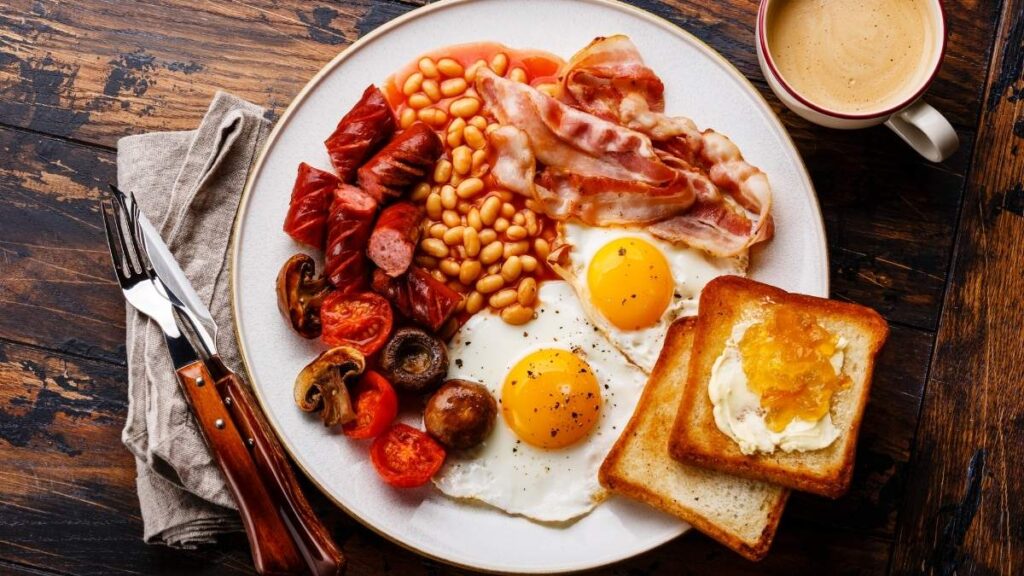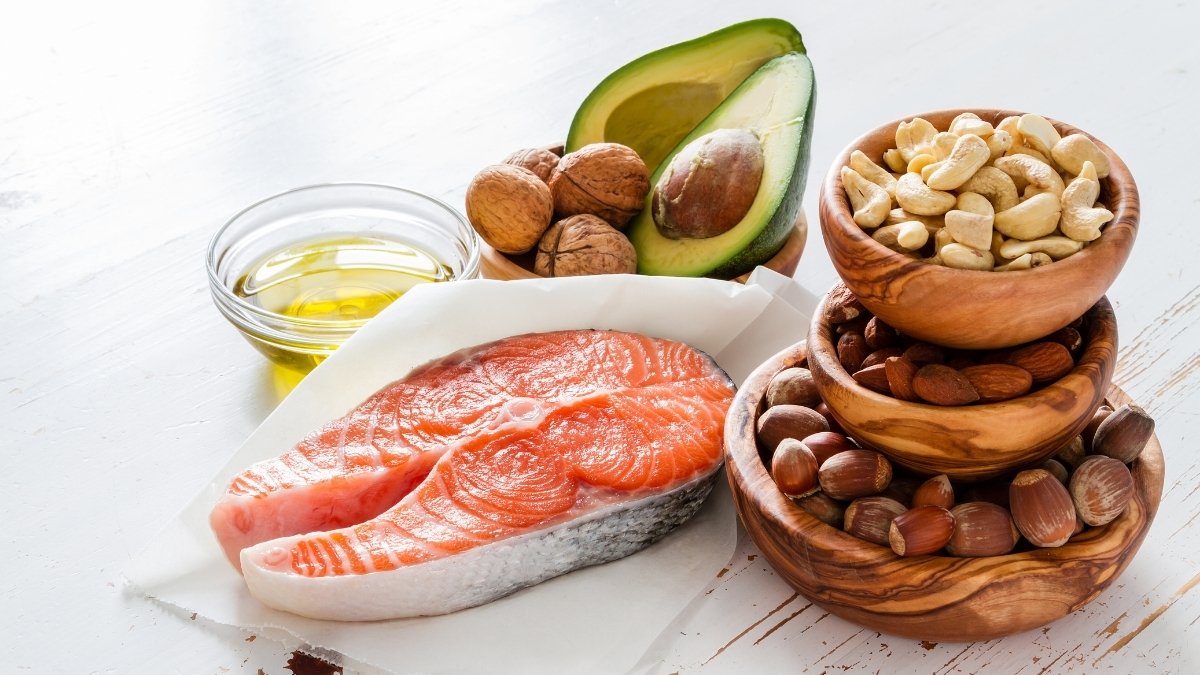15 Morning Habits Killing Your Metabolism After 40 (Stop Now)
📉 Your Metabolism After 40
How your metabolic rate changes with age
😴 Sleep’s Impact on Your Metabolism
How poor sleep sabotages weight loss
With <7 Hours Sleep
Hunger Hormones
for Fat Burning
⚠️ Biggest Metabolism Killers
Habits that slow your fat burning the most
🎯 4-Week Metabolism Boost Plan
Your step-by-step guide to faster fat burning
- Eat breakfast within 30 minutes
- Drink half your body weight in ounces
- Move every 45 minutes
- Add protein to breakfast
- 10 squats every morning
- 20 minutes per meal
- Set regular meal times
- Deep breathing before meals
- Healthy fats each meal
- Stop eating 3 hours before bed
- 7-9 hours sleep nightly
- Replace cardio with walking
- Strength training 2x weekly
- Carbs around workouts
- Consistent eating schedule
- Daily stress management
📊 Metabolism Boosting Stats
Numbers that will motivate your transformation
by muscle vs fat
digesting protein
between movement
possible at any age
Morning Habits That Weaken Your Metabolism After 40
You wake up tired. Your clothes feel tighter. The scale won’t budge no matter what you try.
Sound familiar? You’re not alone. After 40, your metabolism naturally slows down by 3-8% each decade. But here’s what most people don’t know: your morning routine could be making it worse.
The good news? Small changes to how you start your day can fix this. Let’s look at the habits that are secretly sabotaging your metabolism – and what to do instead.
1. The Silent Breakfast Saboteurs

Your breakfast could be the reason you feel sluggish all day. These common morning routine metabolism mistakes are more harmful than you think.
Skipping breakfast entirely seems smart for weight loss. Many people try intermittent fasting but do it wrong. They skip breakfast then overeat later. This crashes your metabolism instead of boosting it. Your body thinks food is scarce and slows down to save energy.
Starting with high-sugar “healthy” smoothies is another trap. That fruit smoothie with dates and honey spikes your blood sugar fast. Then it crashes. You feel hungry again within an hour. Your body stores the excess sugar as fat.

Eating too little protein in the morning keeps your metabolism in low gear. Most people eat 10-15 grams of protein at breakfast. That’s not enough. Studies show that 25-30 grams of protein at breakfast increases your metabolic rate by 20-30%. Protein takes more energy to digest than carbs or fat.
Choosing processed breakfast foods might seem convenient. Cereal, bagels, and granola bars are quick. But they’re loaded with hidden sugars and lack the nutrients your metabolism needs to work properly.
Drinking coffee on an empty stomach stresses your body. Caffeine raises cortisol levels. Without food to buffer it, this hormone tells your body to store fat and break down muscle. Research shows cortisol spikes from caffeine without food can slow fat burning for hours.
Here’s what works better: Eat breakfast within 2 hours of waking. Include 25-30 grams of protein. Add some healthy fats and complex carbs. Try eggs with avocado on whole grain toast. Or Greek yogurt with nuts and berries.
Your morning routine metabolism depends on giving your body the right fuel at the right time.
Hydration Habits That Backfire After 40

Water seems simple. But how and when you drink it affects your metabolism after 40 more than you realize.
Not drinking water immediately upon waking is a missed opportunity. You’ve been without fluids for 7-9 hours. Your body is dehydrated. Even 3% dehydration can slow your metabolic rate. Your organs work harder when they lack water.
Starting with hot lemon water sounds healthy. Many wellness experts recommend it. But the acid can damage tooth enamel and irritate your stomach lining. If you have acid reflux or stomach issues, this makes them worse.
Relying only on coffee for morning fluids doesn’t count as hydration. Coffee is a diuretic. It makes you lose more water than you gain. You end up more dehydrated, which slows your metabolism.

Drinking ice-cold water first thing might seem refreshing. But your body has to work extra hard to warm it up. This can shock your digestive system when it’s trying to wake up.
A Japanese study found that drinking room temperature water first thing in the morning boosted metabolism by 24% for 90 minutes. The researchers think this happens because your body works to process and circulate the water.
Here’s the better approach: Drink 16-20 ounces of room temperature water as soon as you wake up. Add a pinch of sea salt if you want electrolytes. Wait 30 minutes before coffee. This gives your body time to rehydrate properly.
Your morning hydration sets the tone for how well your metabolism works all day.
Exercise Timing Mistakes Slowing Your Burn

When you exercise matters as much as what you do. These timing mistakes can backfire on your metabolism goals.
Doing intense cardio first thing without fuel seems logical. You think you’ll burn more fat on an empty stomach. But your body needs some energy to work efficiently. Without fuel, intense exercise breaks down muscle tissue. Less muscle means slower metabolism.
Skipping strength training for cardio only is a huge mistake after 40. You lose muscle mass naturally as you age. Cardio alone won’t stop this. Strength training creates EPOC – excess post-exercise oxygen consumption. This means you burn calories for hours after your workout ends. Research shows strength training can boost metabolism for up to 38 hours.
Not moving at all in the morning wastes your body’s natural energy peak. Cortisol levels are highest in the morning. This hormone can store fat if you’re stressed. But movement uses cortisol productively and signals your metabolism to start working.

Exercising too late affects more than just that day. Late workouts can disrupt sleep. Poor sleep messes with hormones that control hunger and metabolism. Studies show people who exercise within 4 hours of bedtime have higher cortisol the next morning.
The sweet spot for morning exercise metabolism is 6-10 AM. Start with 10 minutes of movement when you wake up. This could be stretching, light yoga, or a short walk. Save intense workouts for later in the morning when you’ve had some food.
If you strength train, do it 2-3 times per week. Focus on compound movements that work multiple muscles. Think squats, pushups, and rows. These give you the biggest metabolic bang for your time.
Remember: some movement is always better than none. Even 5 minutes of morning activity tells your metabolism to wake up.
Sleep and Stress Patterns That Kill Morning Metabolism
How you end your night affects how your metabolism starts the next day. These patterns create a cycle that’s hard to break.

Checking your phone immediately upon waking floods your system with cortisol. Blue light tricks your brain into thinking it’s still night. Social media and news create stress before your day even starts. High cortisol tells your body to store fat and break down muscle.
Inconsistent wake times confuse your circadian rhythm. Your body doesn’t know when to release hormones that control metabolism. Studies show people with irregular sleep schedules have 27% higher risk of metabolic problems. Your internal clock controls when you feel hungry, when you burn fat, and when you build muscle.
Not getting enough natural light exposure keeps you in metabolic slow mode. Light tells your brain to stop making melatonin and start making cortisol. Without this signal, your metabolism stays sluggish. Research shows 15 minutes of morning sunlight improves metabolic function all day.

Starting the day stressed and rushed creates a cortisol cascade. You wake up late, skip breakfast, grab coffee, and run out the door. This pattern trains your body to expect stress. Chronic stress redirects energy away from metabolism and into survival mode.
Here’s how circadian rhythm studies show you can fix this: Wake up at the same time every day, even on weekends. Keep your phone out of the bedroom. Get sunlight within 30 minutes of waking. Take 5 deep breaths before getting out of bed.
Your metabolism after 40 depends on consistent signals that tell your body when it’s time to burn energy efficiently.
The Supplement and Medication Timing Traps
What you take and when you take it can help or hurt your morning metabolism. Most people get the timing wrong.

Taking medications that slow metabolism at wrong times can sabotage your efforts. Some blood pressure medications, antidepressants, and antihistamines affect metabolic rate. Taking them in the morning when your metabolism should be highest makes the problem worse. Ask your doctor about timing options.
Using metabolism-boosting supplements incorrectly wastes money and opportunity. Green tea extract, B vitamins, and chromium work better on an empty stomach. But many people take them with breakfast when absorption is poor. Read labels for timing instructions.
Ignoring nutrient timing for thyroid support is common after 40. Your thyroid controls metabolism. It needs iodine, selenium, and zinc to work properly. Coffee and calcium block absorption of thyroid medication. Take thyroid support supplements 2 hours before or after coffee.

Missing key vitamins that support metabolic function happens when you don’t plan. Vitamin D, magnesium, and omega-3s all affect how well your body burns energy. Deficiencies in these nutrients are common after 40. They’re best absorbed with fat, so take them with breakfast if it includes healthy fats.
The key is coordination. Work with your doctor to time medications properly. Take morning supplements metabolism boosters on an empty stomach when possible. Support your thyroid with proper nutrient timing.
Remember: supplements work best as part of a healthy routine, not as a replacement for good habits.
Take Action This Week
You don’t need to change everything at once. Pick 2-3 habits that feel doable right now.

Start with these three most impactful changes: eat 25-30 grams of protein at breakfast, drink water before coffee, and wake up at the same time every day. These simple shifts can boost your metabolic rate within a week.
Track your energy levels for the next 7 days. Notice which changes make you feel more alert and energized. Build on what works.
Your metabolism after 40 doesn’t have to slow down dramatically. The right morning habits weakening metabolism over 40 can be replaced with ones that speed it up. Small changes in how you start your day create big changes in how your body burns energy all day long.
15 Habits That Kill Your Metabolism After 40 (And How to Fix Them)
Table of Contents
- Skipping Breakfast
- Eating Too Little
- Sitting All Day
- Avoiding Strength Training
- Not Getting Enough Sleep
- Drinking Too Little Water
- Cutting Out All Carbs
- Eating Too Fast
- Skipping Protein at Breakfast
- Overdoing Cardio
- Eating Irregularly
- Avoiding Healthy Fats
- Not Managing Stress
- Eating Late at Night
- Following Extreme Diets
Why Your Metabolism Changes After 40
You wake up one morning and your jeans don’t fit. Nothing else changed. Same foods, same routine. But something shifted.

After 40, your metabolism drops by 2-8% each decade. Your muscle mass decreases. Hormones shift. Your body starts fighting against you instead of working with you.
But here’s the good news: most metabolism problems come from habits you can fix. Small changes add up to big results.
Quick Win Summary Checklist

Week 1 Focus:
- [ ] Eat breakfast within 30 minutes of waking
- [ ] Drink half your body weight in ounces of water daily
- [ ] Set timer to move every 45 minutes
- [ ] Add protein to breakfast

Week 2 Focus:
- [ ] Do 10 squats every morning
- [ ] Take 20 minutes to eat one meal daily
- [ ] Set regular meal times
- [ ] Practice 10 deep breaths before meals

Week 3 Focus:
- [ ] Add healthy fats to each meal
- [ ] Stop eating 3 hours before bed
- [ ] Get 7-9 hours of sleep nightly
- [ ] Replace one cardio session with walking

Week 4 Focus:
- [ ] Add strength training 2x per week
- [ ] Include healthy carbs around workouts
- [ ] Maintain consistent eating schedule
- [ ] Practice daily stress management
The Bottom Line
Your metabolism after 40 doesn’t have to be a losing battle. Small changes in these 15 habits can boost your metabolic rate by 15-30%.
Start with just one habit this week. Master it before moving to the next. Your body will thank you with more energy, better sleep, and lasting weight management.
Remember: It’s not about perfection. It’s about progress. Every small step moves you closer to the healthy, energetic person you want to be.








